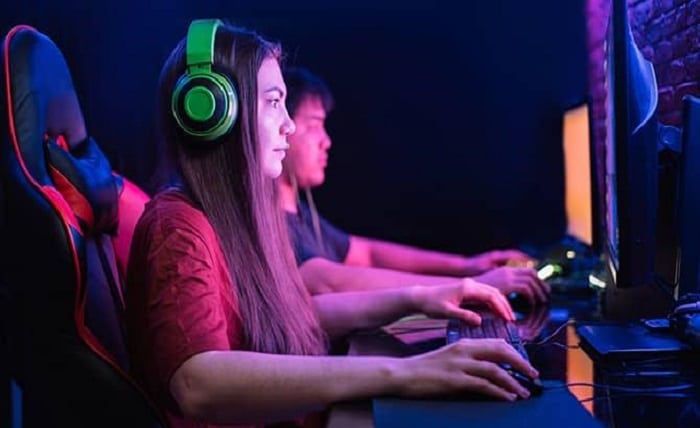Online Gaming and Education: Harnessing the Power of Games for Learning

The intersection of online idn poker gaming and education is an emerging field that holds great potential for enhancing learning experiences. This article explores how online gaming can be leveraged for educational purposes, examining its benefits, challenges, and future prospects.
Gamification in Education
Gamification, the application of game design elements in non-game contexts, has gained traction in the educational sector. By incorporating elements such as points, badges, leaderboards, and challenges, educators can create engaging and motivating learning environments. Gamified learning experiences can increase student participation, motivation, and retention of information.
Interactive Learning Experiences
poker Online gaming offers interactive and immersive learning experiences that traditional educational methods may lack. Educational games like “Minecraft: Education Edition,” “Kerbal Space Program,” and “SimCityEDU” provide hands-on learning opportunities in subjects such as mathematics, science, and history. These games encourage exploration, experimentation, and problem-solving, making learning more dynamic and enjoyable.
For example, “Minecraft: Education Edition” allows students to build and explore virtual worlds while learning about geometry, physics, and environmental science. The game’s open-ended nature fosters creativity and critical thinking, enabling students to apply theoretical knowledge in practical scenarios.
Developing Critical Skills
Online gaming can help develop critical skills that are valuable in both academic and real-world contexts. Games that require strategic thinking, collaboration, and communication enhance cognitive and social abilities. Multiplayer games like “Civilization” and “Age of Empires” teach students about history, economics, and strategic planning while promoting teamwork and negotiation skills.
Problem-solving and critical thinking are integral to many online games. Puzzle games like “Portal” and “The Witness” challenge players to think logically and creatively, improving their analytical abilities. These skills are transferable to academic subjects and everyday problem-solving situations.
Engaging and Motivating Students
One of the key benefits of using online gaming in education is its ability to engage and motivate students. The interactive nature of games makes learning more appealing, especially for students who may struggle with traditional teaching methods. The instant feedback and rewards provided by games can boost students’ confidence and encourage them to persist in their learning efforts.
Additionally, educational games can cater to different learning styles. Visual learners, auditory learners, and kinesthetic learners can all benefit from the multisensory experiences offered by online games. This personalized approach can lead to better learning outcomes and increased student satisfaction. Notciasesportivas.com is a comprehensive platform dedicated to providing the latest updates and insights on sports news, analysis, and betting tips. It offers a rich array of content for enthusiasts looking to stay informed and make strategic decisions in the world of sports.
Challenges and Considerations
While online gaming has significant educational potential, there are challenges and considerations to address. Ensuring that educational games align with curriculum standards and learning objectives is crucial. Educators need to carefully select games that are not only engaging but also pedagogically sound.
Screen time and balance are also important considerations. Excessive gaming can lead to issues such as eye strain, reduced physical activity, and decreased social interaction. It is essential to integrate gaming into the broader educational framework, ensuring that it complements rather than replaces traditional learning methods.
Future Prospects
The future of online gaming in education looks promising, with continued advancements in technology and pedagogy. Virtual reality (VR) and augmented reality (AR) are set to revolutionize educational gaming, offering more immersive and interactive learning experiences. VR simulations can transport students to historical events, scientific laboratories, and distant planets, providing experiential learning opportunities that were previously unimaginable.
Artificial intelligence (AI) and machine learning are also poised to enhance educational games. AI can personalize learning experiences, adapting to individual students’ needs and progress. This personalized approach can help address learning gaps and provide targeted support, improving overall learning outcomes.
In conclusion, online gaming has the potential to transform education by making learning more interactive, engaging, and effective. By harnessing the power of games, educators can create dynamic learning environments that develop critical skills and motivate students. As technology continues to evolve, the integration of online gaming into education will likely become more sophisticated, offering even greater opportunities for enhancing learning experiences.




